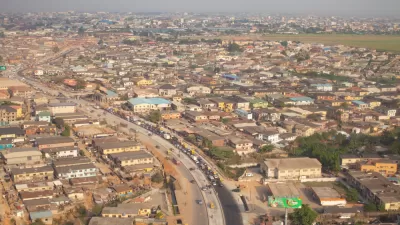While cities are growing, it's comparatively easy to keep a healthy balance sheet. But for cities like Charlotte, managing the transition from a growth economy to economic sustainability is a treacherous one. Aaron Renn delivers a cautionary tale.
"Rapidly growing cities benefit from scale economics. As a city grows, it spreads the fixed costs of providing services across more units, thus lowering unit costs and enabling taxes to stay low," explains Renn. "The real question is what happens when the growth cycle ends and unit costs either flatline or start going up. Can the city find sustainability demographically, economically and fiscally without growth as a fuel?"
"This is the mark of a great city," he continues. "A London or a New York can sustain and reinvent itself across growth cycles. Too many places, particularly our Rust Belt cities, have not met this challenge. When the economy shifted and growth ended, they went into a decline that has not yet abated."
"Rather than making today's Sun Belt boomtowns smug, this should serve as a cautionary tale. Even the most prosperous and seemingly invincible cities can be undone when trends shift and growth fades."
FULL STORY: The Illusion of Growth Economics: Can Cities Like Charlotte Reinvent Themselves?

Planetizen Federal Action Tracker
A weekly monitor of how Trump’s orders and actions are impacting planners and planning in America.

Maui's Vacation Rental Debate Turns Ugly
Verbal attacks, misinformation campaigns and fistfights plague a high-stakes debate to convert thousands of vacation rentals into long-term housing.

Restaurant Patios Were a Pandemic Win — Why Were They so Hard to Keep?
Social distancing requirements and changes in travel patterns prompted cities to pilot new uses for street and sidewalk space. Then it got complicated.

In California Battle of Housing vs. Environment, Housing Just Won
A new state law significantly limits the power of CEQA, an environmental review law that served as a powerful tool for blocking new development.

Boulder Eliminates Parking Minimums Citywide
Officials estimate the cost of building a single underground parking space at up to $100,000.

Orange County, Florida Adopts Largest US “Sprawl Repair” Code
The ‘Orange Code’ seeks to rectify decades of sprawl-inducing, car-oriented development.
Urban Design for Planners 1: Software Tools
This six-course series explores essential urban design concepts using open source software and equips planners with the tools they need to participate fully in the urban design process.
Planning for Universal Design
Learn the tools for implementing Universal Design in planning regulations.
Heyer Gruel & Associates PA
JM Goldson LLC
Custer County Colorado
City of Camden Redevelopment Agency
City of Astoria
Transportation Research & Education Center (TREC) at Portland State University
Jefferson Parish Government
Camden Redevelopment Agency
City of Claremont





























